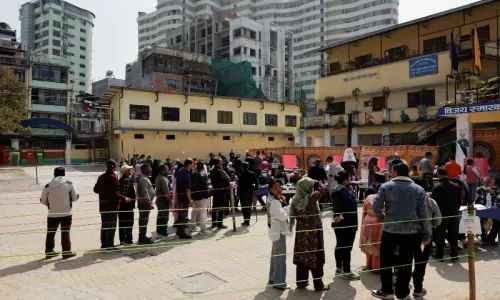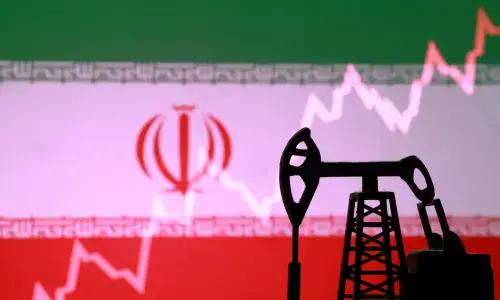Can everyday humiliation by gun-toting soldiers allow for a calm repose to those in Indian Kashmir who are caught in the cross hairs of its unending conflict? Probably not, but if it could, I would have slipped into Burhan Wani’s young hands news clippings that would have at least made him smile if not also change his strategy to tame Kashmir’s torturers. There must be more sure-footed ways than dying to confront overwhelming adversities.
But let me first differ with Umar Khalid, though we all greatly respect the student leader from Jawarharlal Nehru University for his quick grasp of issues. He has reportedly likened Burhan Wani to Che Guevara. I would have thought Rachel Corrie was the inspiration he wanted to cite. She was 23, one year older than Wani, when the American peace activist defiantly stood before Israeli bulldozers. Her death reminds the Palestinians they are not alone when the chips are down.
Che for a good reason valued his life more than Burhan Wani seemed to do. And he gave his people memorable victories while handing his foes a hard time. Che would have probably not gone on social media, as Burhan did, to brag about his challenge to the Indian military even if it brutally occupied his homeland. If he thought he had a cogent fighting plot, over and above a death wish, Burhan might have slipped into the forests as Che did, incognito.
Read: In Kashmir, the young are paying for India’s lack of vision
Qandeel, like Burhan, was on a collision course with a primeval society’s full might.
Burhan Wani was dead meat when he toyed with his laptop to assemble a manifesto that would make him Kashmir’s new icon. There is no way he was not being tracked as he boasted, as young inexperienced people often do, about a prowess they may not possess. This is not to say that the outrage his death spurred was misplaced, not at all. But who will assure anyone that the sacrifices of lives such anger always summons will not again dissipate into a tame agreement between India and Pakistan, short of azadi. A genuine fear is that Kashmir, like Balochistan, Palestine, Kurdistan, Jaffna, or Manipur, has become a chip in a bigger game that the victims hesitate to see.
Another young life was wasted in Multan the other day. In many ways, Qandeel Baloch reminded me of Amy Winehouse, the troubled young singer also with a failed marriage who died tragically five years ago when she was just 27. Qandeel’s brother allegedly strangled the 26-year-old actor-crooner-activist. Her daring appearances on social media insulted the family honour, he asserted. Like Burhan, Qandeel was staging a fight for her version of azadi. I am surprised that Pakistani feminists did not take her under their wings.
Was Qandeel fully aware of the sheer enormity of her circumstances? The entire stretch from western Uttar Pradesh in India right up to Afghanistan is shadowed by a vicious bias against women, chiefly young women. The notion of family honour in western Uttar Pradesh, initially an intra-caste affair is being harnessed to suit the Indian state’s emerging vote-rich communal purposes. Qandeel, like Burhan, was on a collision course with a primeval society’s full might.
There is something else that needs to be understood perhaps. If Burhan’s militant organisation of choice was Hizbul Mujahideen he was on the regressive side of Kashmir’s past and even more worryingly on the wrong side for any agreeable future involving all Kashmiris. It was just not enough for him to declare he would not harm Hindu pilgrims to Amarnath or welcome Hindu Kashmiris wanting to return home. Most Kashmiris, including a few in the Hurriyat Conference, are aware that Hizbul Mujahideen’s sectarian Islamic worldview is not the kind that embraces the complex social mix Kashmir is.
Of course, there’s no evidence to suggest that Burhan Wani was even remotely a religious zealot. In which case it is Kashmir’s tragedy that the only fighting force left for him to embrace in the field was a religiously imbued one. That’s not going to take anyone very far in the fight for Kashmiriyat.
About the news clippings I would have shared with Burhan? They are titbits of news items that reveal the chink in the armour of the mighty Indian state; the fact that the holy cow called the security forces comprises very needy and ordinary human beings. It’s true that Indian troops easily get away with rape and murder. Most armies do. But where in the world would you find patriotic men applying to join the patriotic army being made to strip over fears they would cheat by hiding answer sheets in their clothes?
One news item I would share with Burhan would have made him smile, but also reflect. It was a TV news clip from March 1 this year. Some 1,100 candidates were ‘horrified’ as they reached the examination centre in Muzaffarpur in Bihar and were asked to strip. “The vest too,” the examiners said when the jobseekers took off their shirts and trousers.
Harishambhu Kumar, 21, who appeared for the exam for the first time, said: “We were frisked and then ushered into an enclosure. Then the army officers asked us to remove all clothes except our underwear. I felt awkward, but the army people told us it was to check cheating, so I got used to it.”
The jostling for credit in the army and paramilitary men is legendary in Kashmir and Manipur. In Delhi, aren’t the former army men clamouring for higher pension as the price for the supreme sacrifice they were never required to make? Burhan would have probably chuckled at the moral edge he had over his purported quarries. Qandeel Baloch, on the other hand, did not need a trigger to induce her famous smile. She had to be drugged before being strangled, lest she scared away her killer with an absurdly timed giggle.
The writer is Dawn’s correspondent in New Delhi.
Published in Dawn, July 19th, 2016

































